Shows
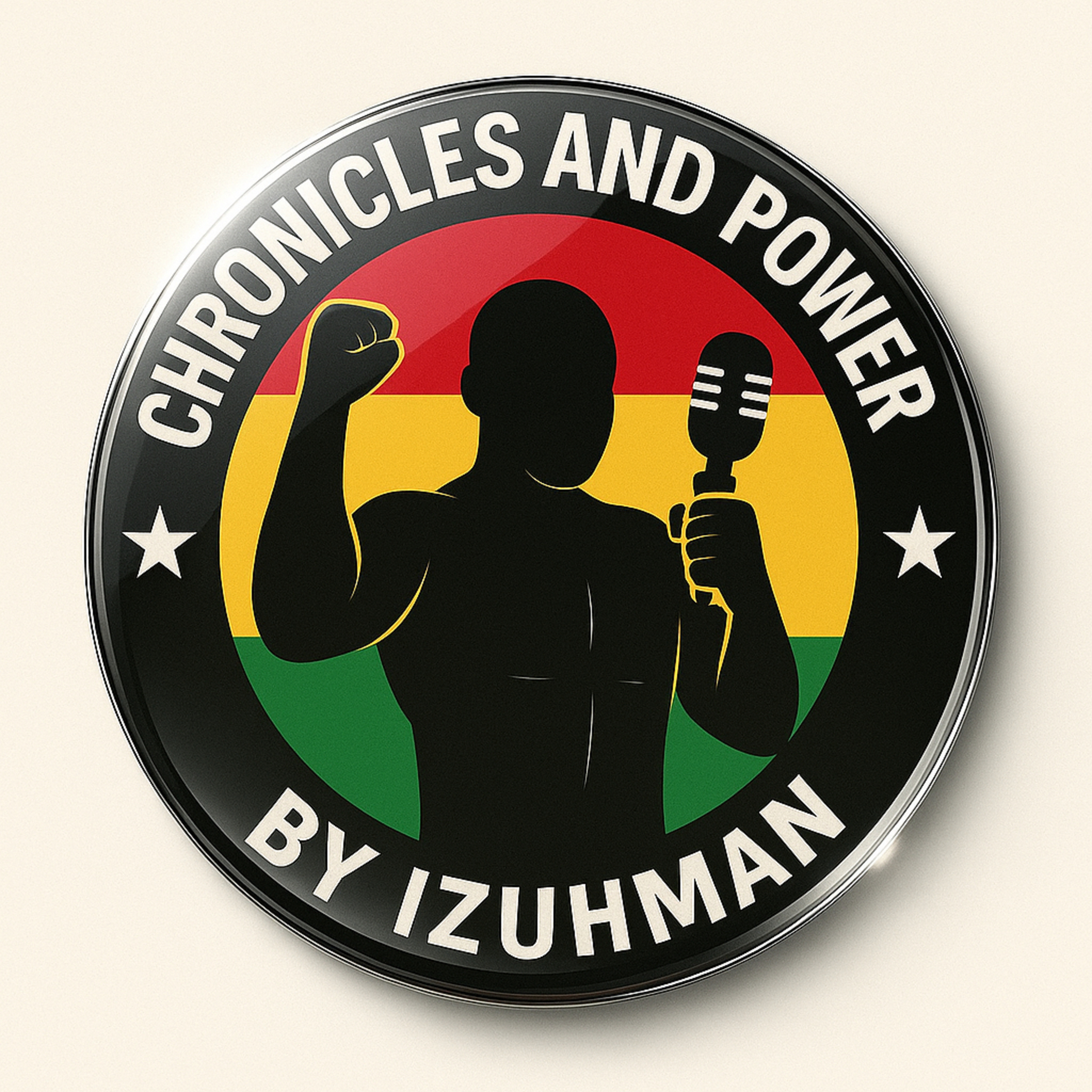 Chronicles and Power by IzuhManThe GMO Story (Ep01): Science or Silent Threat?GMO stands for Genetically Modified Organism—a plant, animal, or microbe whose DNA has been changed in a lab to create traits like faster growth or pest resistance. While some see it as innovation, others warn of health, environmental, and food sovereignty risks.2025-07-2804 min
Chronicles and Power by IzuhManThe GMO Story (Ep01): Science or Silent Threat?GMO stands for Genetically Modified Organism—a plant, animal, or microbe whose DNA has been changed in a lab to create traits like faster growth or pest resistance. While some see it as innovation, others warn of health, environmental, and food sovereignty risks.2025-07-2804 min Chronicles and Power by IzuhManThe GMO story: Prelude.A silent war is being planted—seed by seed. Before GMO took over our farms, it crept into our policies, our labs, and our hunger. This is the prelude to a deeper story of control, disguised as innovation.2025-07-2803 min
Chronicles and Power by IzuhManThe GMO story: Prelude.A silent war is being planted—seed by seed. Before GMO took over our farms, it crept into our policies, our labs, and our hunger. This is the prelude to a deeper story of control, disguised as innovation.2025-07-2803 min Chronicles and Power by IzuhManInfusing Ubuntu into the African System of EducationInfusing Ubuntu into the African System of Education means bringing the spirit of togetherness, compassion, and shared humanity into our schools. It calls for an education system that not only teaches knowledge but also builds character, community values, and respect for others—reminding every child that “I am because we are.”2025-07-2804 min
Chronicles and Power by IzuhManInfusing Ubuntu into the African System of EducationInfusing Ubuntu into the African System of Education means bringing the spirit of togetherness, compassion, and shared humanity into our schools. It calls for an education system that not only teaches knowledge but also builds character, community values, and respect for others—reminding every child that “I am because we are.”2025-07-2804 min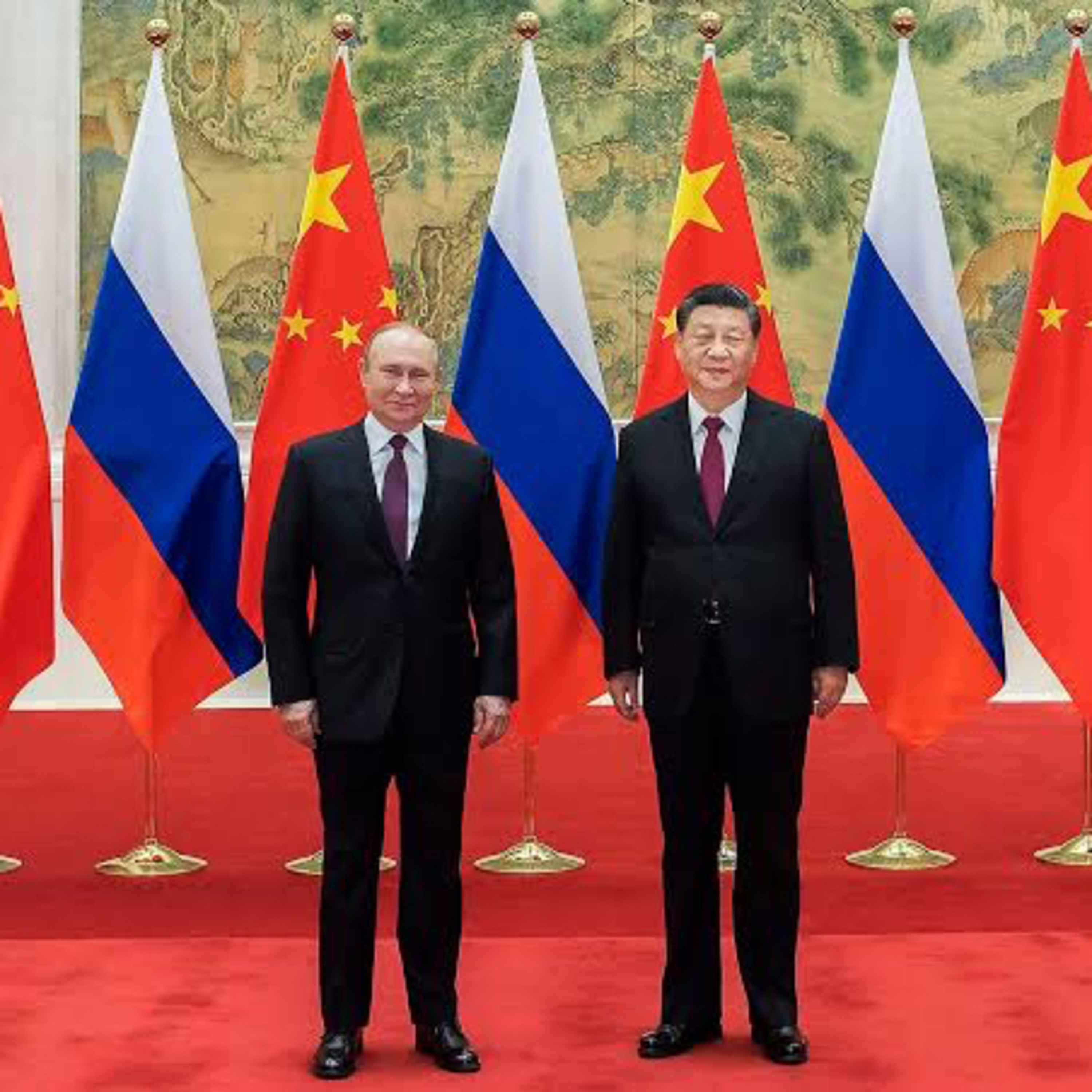 Chronicles and Power by IzuhManRussia and China Smirking as They Swipe Africa’s Affection from Struggling Western Powers.In 2025, Sub-Saharan Africa is a geopolitical hotspot. Russia expands influence through military support in Mali, Burkina Faso, and CAR, trading arms and security for resources, while fueling anti-Western sentiment. China drives economic dominance via Belt and Road infrastructure and trade deals, controlling key minerals, though debt risks linger. African nations, frustrated with Western policies, leverage Russian security and Chinese investment to boost trade, tech, and energy while safeguarding autonomy. With a young population and significant UN influence, Africa navigates global rivalries, poised to emerge as a major player.2025-07-0504 min
Chronicles and Power by IzuhManRussia and China Smirking as They Swipe Africa’s Affection from Struggling Western Powers.In 2025, Sub-Saharan Africa is a geopolitical hotspot. Russia expands influence through military support in Mali, Burkina Faso, and CAR, trading arms and security for resources, while fueling anti-Western sentiment. China drives economic dominance via Belt and Road infrastructure and trade deals, controlling key minerals, though debt risks linger. African nations, frustrated with Western policies, leverage Russian security and Chinese investment to boost trade, tech, and energy while safeguarding autonomy. With a young population and significant UN influence, Africa navigates global rivalries, poised to emerge as a major player.2025-07-0504 min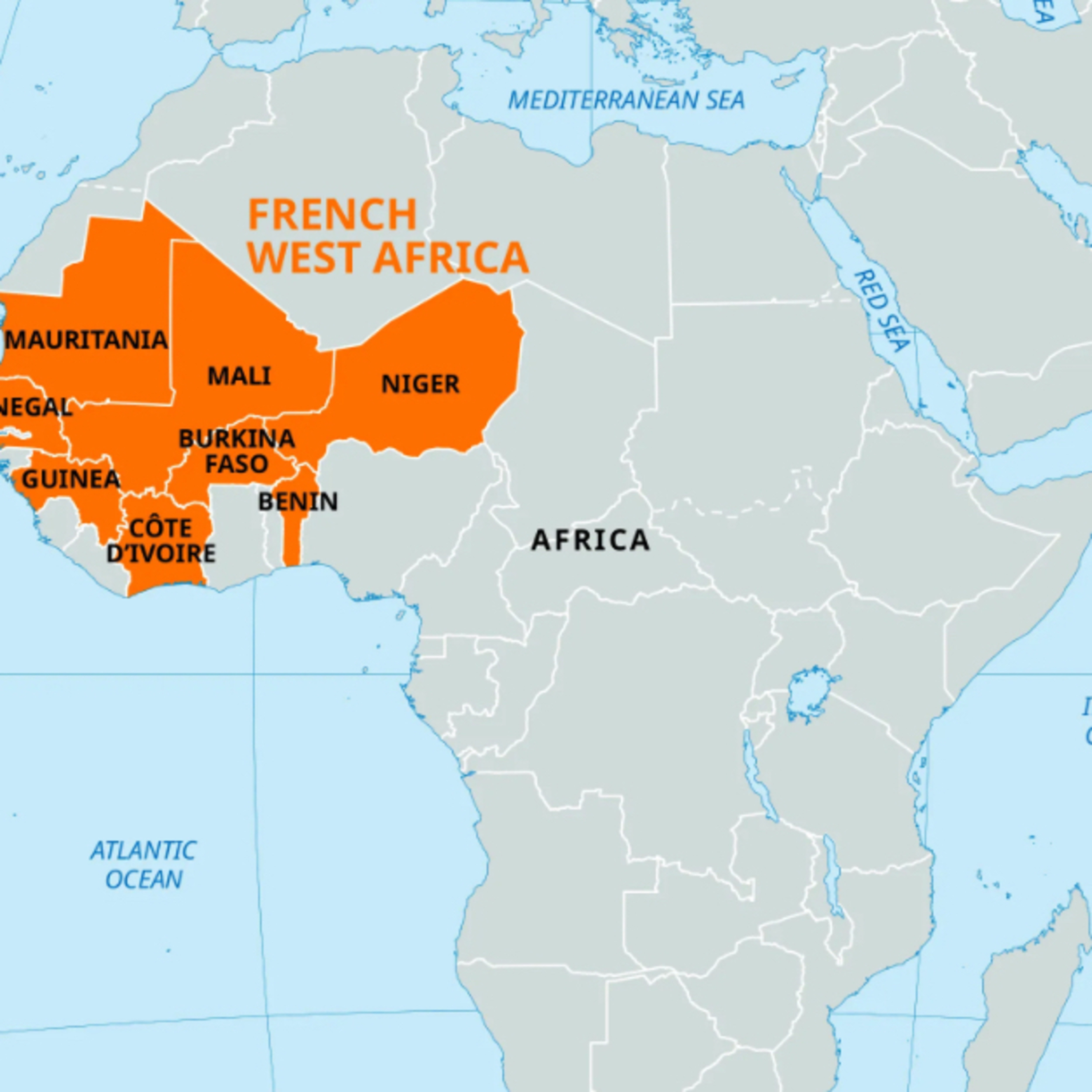 Chronicles and Power by IzuhManFrench African Empire; crashing harder than nuts in a blender.France is losing influence in the Sahel (Mali, Niger, Burkina Faso, Chad) due to anti-French sentiment over its colonial past and failed counterterrorism efforts like Operation Barkhane. Military coups have led to juntas expelling French troops and aligning with Russia and China. Regional demands for sovereignty, backed by protests, have pushed France out of Mali, Burkina Faso, Niger, and Chad, while it shifts focus to economic ties with Anglophone African nations.2025-07-0204 min
Chronicles and Power by IzuhManFrench African Empire; crashing harder than nuts in a blender.France is losing influence in the Sahel (Mali, Niger, Burkina Faso, Chad) due to anti-French sentiment over its colonial past and failed counterterrorism efforts like Operation Barkhane. Military coups have led to juntas expelling French troops and aligning with Russia and China. Regional demands for sovereignty, backed by protests, have pushed France out of Mali, Burkina Faso, Niger, and Chad, while it shifts focus to economic ties with Anglophone African nations.2025-07-0204 min Chronicles and Power by IzuhManBritain's Fading Empire: Nigeria Stands Loyal Amid Commonwealth DriftBritain's grand imperial legacy is unraveling, its once-ironclad sway over Commonwealth nations dissolving into whispers of the past, as allegiances falter and ties fray—yet Nigeria, a radiant bastion of loyalty, boldly defies the exodus, standing resolute as the empire's last unwavering stronghold in a world turning its back.2025-06-2505 min
Chronicles and Power by IzuhManBritain's Fading Empire: Nigeria Stands Loyal Amid Commonwealth DriftBritain's grand imperial legacy is unraveling, its once-ironclad sway over Commonwealth nations dissolving into whispers of the past, as allegiances falter and ties fray—yet Nigeria, a radiant bastion of loyalty, boldly defies the exodus, standing resolute as the empire's last unwavering stronghold in a world turning its back.2025-06-2505 min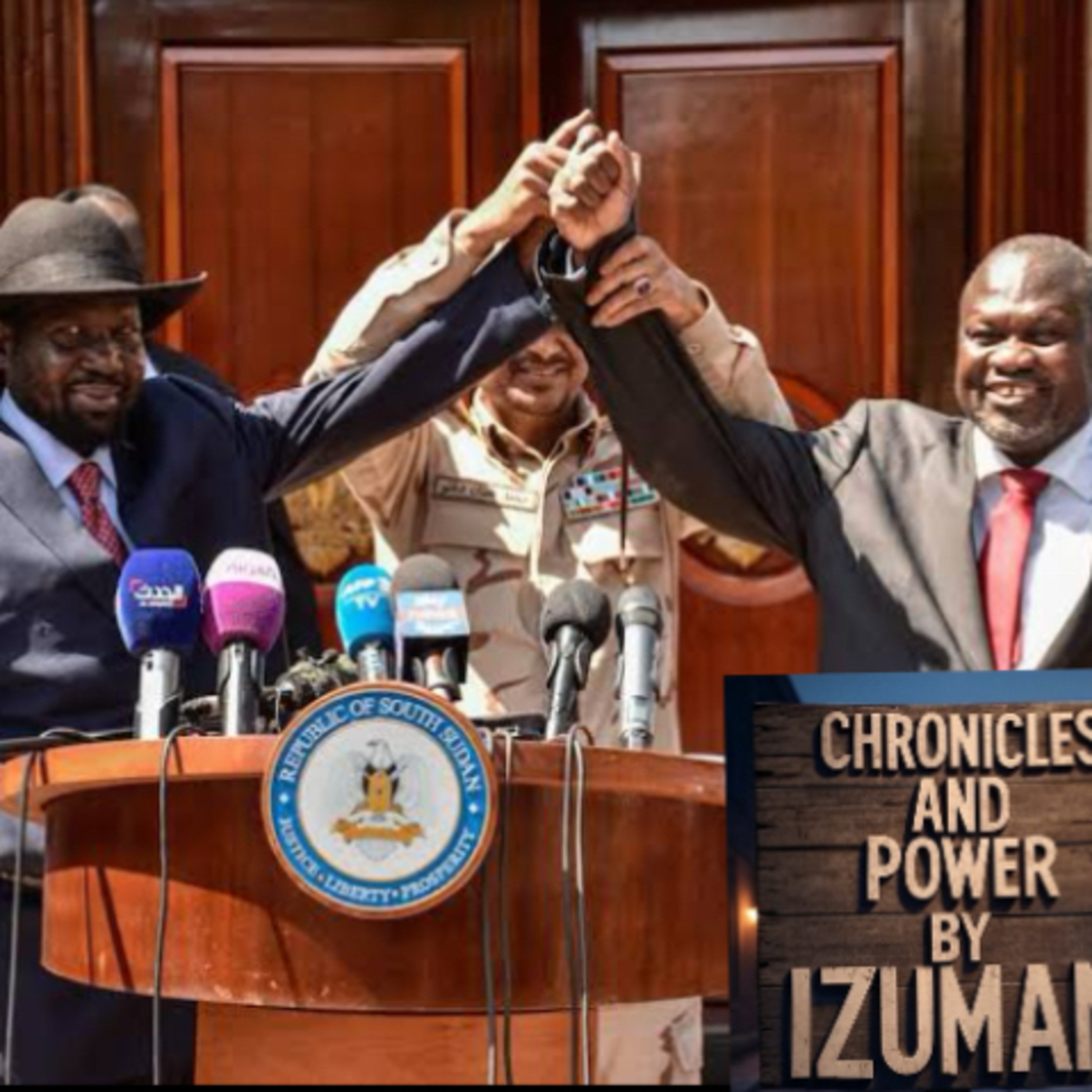 Chronicles and Power by IzuhManCrisis in South Sudan 🇸🇸 & its Catalysts.The power struggle between Salva Kiir and Riek Machar has driven South Sudan’s crisis since its 2011 independence. Kiir, a Dinka, and Machar, a Nuer, have fueled ethnic and political tensions. Their rivalry escalated into civil war in 2013 when Kiir sacked Machar as vice-president, sparking violence that killed 400,000 and displaced millions. A 2018 peace deal formed a unity government in 2020, but unimplemented provisions like army unification kept tensions high. In March 2025, Kiir ordered Machar’s arrest for alleged rebellion, nullifying the peace deal and risking renewed conflict. Ethnic divisions, economic collapse from a 2024 oil pipeline burst, and delayed elections worsen the...2025-06-0704 min
Chronicles and Power by IzuhManCrisis in South Sudan 🇸🇸 & its Catalysts.The power struggle between Salva Kiir and Riek Machar has driven South Sudan’s crisis since its 2011 independence. Kiir, a Dinka, and Machar, a Nuer, have fueled ethnic and political tensions. Their rivalry escalated into civil war in 2013 when Kiir sacked Machar as vice-president, sparking violence that killed 400,000 and displaced millions. A 2018 peace deal formed a unity government in 2020, but unimplemented provisions like army unification kept tensions high. In March 2025, Kiir ordered Machar’s arrest for alleged rebellion, nullifying the peace deal and risking renewed conflict. Ethnic divisions, economic collapse from a 2024 oil pipeline burst, and delayed elections worsen the...2025-06-0704 min Chronicles and Power by IzuhManThe Effects of Foreign Influence in The DR Congo Crisis. 🇨🇩The Democratic Republic of Congo (DRC) is grappling with a severe humanitarian crisis driven by escalating violence, particularly in the eastern provinces of North and South Kivu. Since December 2024, the Rwanda-backed M23 rebel group has intensified its offensive, capturing key cities like Goma and Bukavu, leading to thousands of deaths and displacing over 7.3 million people internally, with 1 million seeking asylum abroad. The conflict, fueled by ethnic tensions, political instability, and competition over mineral resources like cobalt and coltan, has caused widespread human rights abuses, including sexual violence and indiscriminate shelling. Over 25 million people face food insecurity, and disease outbreaks...2025-06-0106 min
Chronicles and Power by IzuhManThe Effects of Foreign Influence in The DR Congo Crisis. 🇨🇩The Democratic Republic of Congo (DRC) is grappling with a severe humanitarian crisis driven by escalating violence, particularly in the eastern provinces of North and South Kivu. Since December 2024, the Rwanda-backed M23 rebel group has intensified its offensive, capturing key cities like Goma and Bukavu, leading to thousands of deaths and displacing over 7.3 million people internally, with 1 million seeking asylum abroad. The conflict, fueled by ethnic tensions, political instability, and competition over mineral resources like cobalt and coltan, has caused widespread human rights abuses, including sexual violence and indiscriminate shelling. Over 25 million people face food insecurity, and disease outbreaks...2025-06-0106 min Chronicles and Power by IzuhManWhy does North Africa feel worlds apart from Sub-Saharan Africa?North Africa feels distinct from Sub-Saharan Africa due to the Sahara Desert’s geographic divide, shaping different climates and economies. Historically, North Africa integrated with Mediterranean and Islamic worlds, adopting Arab culture and language, while Sub-Saharan Africa’s diverse ethnic groups and kingdoms evolved separately. Culturally, North Africa’s Arab-Islamic identity contrasts with Sub-Saharan Africa’s varied traditions and religions. Politically, North Africa aligns with the Arab world, while Sub-Saharan Africa focuses on pan-African ties. Colonial legacies further deepened these divides.2025-05-1107 min
Chronicles and Power by IzuhManWhy does North Africa feel worlds apart from Sub-Saharan Africa?North Africa feels distinct from Sub-Saharan Africa due to the Sahara Desert’s geographic divide, shaping different climates and economies. Historically, North Africa integrated with Mediterranean and Islamic worlds, adopting Arab culture and language, while Sub-Saharan Africa’s diverse ethnic groups and kingdoms evolved separately. Culturally, North Africa’s Arab-Islamic identity contrasts with Sub-Saharan Africa’s varied traditions and religions. Politically, North Africa aligns with the Arab world, while Sub-Saharan Africa focuses on pan-African ties. Colonial legacies further deepened these divides.2025-05-1107 min Chronicles and Power by IzuhMan5 common misconceptions about Muammar Gaddafi1. Universally Hated: Gaddafi had significant support in Libya despite opposition. 2. Poor Libya: Libya was wealthy with high GDP and social programs under Gaddafi. 3. Terrorist Mastermind: His role in attacks like Lockerbie was exaggerated; he funded more than planned. 4. Hoarded Wealth: Gaddafi invested in Libya, with debated personal wealth. 5. Internal Revolt: 2011 fall was driven by NATO, not just a local uprising.2025-05-0601 min
Chronicles and Power by IzuhMan5 common misconceptions about Muammar Gaddafi1. Universally Hated: Gaddafi had significant support in Libya despite opposition. 2. Poor Libya: Libya was wealthy with high GDP and social programs under Gaddafi. 3. Terrorist Mastermind: His role in attacks like Lockerbie was exaggerated; he funded more than planned. 4. Hoarded Wealth: Gaddafi invested in Libya, with debated personal wealth. 5. Internal Revolt: 2011 fall was driven by NATO, not just a local uprising.2025-05-0601 min Chronicles and Power by IzuhManThe Iva Valley Massacre: Enugu Coal Miners’ Revolt of 1949On November 18, 1949, at the Iva Valley Coal Mine in Enugu, Nigeria, 21 striking coal miners and a bystander were killed, and 51 others injured by British colonial police led by Superintendent F.S. Philip. The miners, protesting poor working conditions, unpaid wages, and racial abuse under British management, occupied the mine to prevent a lockout. Tensions escalated when police attempted to remove explosives, leading to the shooting of unarmed workers. The massacre, known as the Iva Valley Shooting, sparked nationwide outrage, fueled the Zikist independence movement, and strengthened Nigeria’s push for independence.2025-05-0307 min
Chronicles and Power by IzuhManThe Iva Valley Massacre: Enugu Coal Miners’ Revolt of 1949On November 18, 1949, at the Iva Valley Coal Mine in Enugu, Nigeria, 21 striking coal miners and a bystander were killed, and 51 others injured by British colonial police led by Superintendent F.S. Philip. The miners, protesting poor working conditions, unpaid wages, and racial abuse under British management, occupied the mine to prevent a lockout. Tensions escalated when police attempted to remove explosives, leading to the shooting of unarmed workers. The massacre, known as the Iva Valley Shooting, sparked nationwide outrage, fueled the Zikist independence movement, and strengthened Nigeria’s push for independence.2025-05-0307 min Chronicles and Power by IzuhManThe June 12, 1993 elections annulment.On June 12, 1993, Nigeria held a presidential election, the first since the 1983 military coup. Moshood Abiola of the Social Democratic Party (SDP) defeated Bashir Tofa of the National Republican Convention (NRC) in a vote deemed free and fair by observers. Despite Abiola’s apparent victory, military ruler Ibrahim Babangida annulled the results, citing irregularities. This sparked protests, political unrest, and a return to military rule under Sani Abacha. The annulment remains a pivotal moment in Nigeria’s democratic struggle, with June 12 later declared Democracy Day.[](https://en.wikipedia.org/wiki/1993_Nigerian_presidential_election)[](https://von.gov.ng/the-significance-of-june-12-1993-presidential-election-in-nigerias-political-history/)2025-04-2509 min
Chronicles and Power by IzuhManThe June 12, 1993 elections annulment.On June 12, 1993, Nigeria held a presidential election, the first since the 1983 military coup. Moshood Abiola of the Social Democratic Party (SDP) defeated Bashir Tofa of the National Republican Convention (NRC) in a vote deemed free and fair by observers. Despite Abiola’s apparent victory, military ruler Ibrahim Babangida annulled the results, citing irregularities. This sparked protests, political unrest, and a return to military rule under Sani Abacha. The annulment remains a pivotal moment in Nigeria’s democratic struggle, with June 12 later declared Democracy Day.[](https://en.wikipedia.org/wiki/1993_Nigerian_presidential_election)[](https://von.gov.ng/the-significance-of-june-12-1993-presidential-election-in-nigerias-political-history/)2025-04-2509 min Chronicles and Power by IzuhManGeneral Sani AbachaSani Abacha was a Nigerian military officer and dictator who ruled as Head of State from 1993 until his death in 1998. Known for his authoritarian regime, he suppressed opposition, controlled the media, and was accused of widespread human rights abuses and corruption, amassing significant wealth during his tenure. His sudden death led to Nigeria's transition to democracy.2025-04-1108 min
Chronicles and Power by IzuhManGeneral Sani AbachaSani Abacha was a Nigerian military officer and dictator who ruled as Head of State from 1993 until his death in 1998. Known for his authoritarian regime, he suppressed opposition, controlled the media, and was accused of widespread human rights abuses and corruption, amassing significant wealth during his tenure. His sudden death led to Nigeria's transition to democracy.2025-04-1108 min Chronicles and Power by IzuhManNigeria - Biafra War (Brief narration of a genocidal war)The Biafran War, also known as the Nigerian Civil War, lasted from July 6, 1967, to January 15, 1970. It began when the southeastern region of Nigeria, predominantly inhabited by the Igbo people, declared independence as the Republic of Biafra due to ethnic tensions, economic disputes, and political instability following Nigeria's independence from Britain in 1960. The Nigerian federal government, seeking to maintain national unity, launched a military campaign to suppress the secession. The war resulted in widespread famine, particularly in Biafra, and an estimated 3-5 million deaths, mostly from starvation and disease. It ended with Biafra's surrender and reintegration into Nigeria.2025-04-0410 min
Chronicles and Power by IzuhManNigeria - Biafra War (Brief narration of a genocidal war)The Biafran War, also known as the Nigerian Civil War, lasted from July 6, 1967, to January 15, 1970. It began when the southeastern region of Nigeria, predominantly inhabited by the Igbo people, declared independence as the Republic of Biafra due to ethnic tensions, economic disputes, and political instability following Nigeria's independence from Britain in 1960. The Nigerian federal government, seeking to maintain national unity, launched a military campaign to suppress the secession. The war resulted in widespread famine, particularly in Biafra, and an estimated 3-5 million deaths, mostly from starvation and disease. It ended with Biafra's surrender and reintegration into Nigeria.2025-04-0410 min Chronicles and Power by IzuhManThe Aburi Accord of 1967The Aburi Accord was an agreement reached in January 1967 in Aburi, Ghana, between Nigeria's Federal Military Government and Eastern Region leaders, aiming to prevent civil war by granting regions more autonomy and establishing a collective military council, but it failed due to differing interpretations and lack of implementation.2025-03-1907 min
Chronicles and Power by IzuhManThe Aburi Accord of 1967The Aburi Accord was an agreement reached in January 1967 in Aburi, Ghana, between Nigeria's Federal Military Government and Eastern Region leaders, aiming to prevent civil war by granting regions more autonomy and establishing a collective military council, but it failed due to differing interpretations and lack of implementation.2025-03-1907 min Chronicles and Power by IzuhManJuly 1966 Counter-Coup in Nigeria (The Vendetta Coup).The July 1966 counter-coup in Nigeria, also known as the "July Rematch," was a military uprising led by Lt. Colonel Murtala Muhammed and northern officers. Starting as a mutiny on July 28, it was a reaction to the January 1966 coup, resulting in the assassination of General Johnson Aguiyi-Ironsi and Lt. Colonel Adekunle Fajuyi in Ibadan. Lt. Colonel Yakubu Gowon emerged as Head of State, marking a shift in power amid ethnic tensions.2025-03-1208 min
Chronicles and Power by IzuhManJuly 1966 Counter-Coup in Nigeria (The Vendetta Coup).The July 1966 counter-coup in Nigeria, also known as the "July Rematch," was a military uprising led by Lt. Colonel Murtala Muhammed and northern officers. Starting as a mutiny on July 28, it was a reaction to the January 1966 coup, resulting in the assassination of General Johnson Aguiyi-Ironsi and Lt. Colonel Adekunle Fajuyi in Ibadan. Lt. Colonel Yakubu Gowon emerged as Head of State, marking a shift in power amid ethnic tensions.2025-03-1208 min Chronicles and Power by IzuhManA short history of the Igbo pogroms before and after Nigeria’s independence.The Igbo pogroms in Nigeria refer to a series of violent attacks and massacres targeting the Igbo people, particularly in the northern regions of the country. 2025-03-0809 min
Chronicles and Power by IzuhManA short history of the Igbo pogroms before and after Nigeria’s independence.The Igbo pogroms in Nigeria refer to a series of violent attacks and massacres targeting the Igbo people, particularly in the northern regions of the country. 2025-03-0809 min Chronicles and Power by IzuhManThe Failed January 1966 coup d’etat in NigeriaThe failed January 1966 coup in Nigeria was led by a group of young military officers who sought to overthrow the government and eliminate political corruption. The coup resulted in the assassination of the Prime Minister and several other senior officials, but ultimately failed to achieve its objectives, leading to a series of counter-coups and eventually the Nigerian Civil War.2025-03-0115 min
Chronicles and Power by IzuhManThe Failed January 1966 coup d’etat in NigeriaThe failed January 1966 coup in Nigeria was led by a group of young military officers who sought to overthrow the government and eliminate political corruption. The coup resulted in the assassination of the Prime Minister and several other senior officials, but ultimately failed to achieve its objectives, leading to a series of counter-coups and eventually the Nigerian Civil War.2025-03-0115 min Chronicles and Power by IzuhManThe Berlin Conference (1884-1885) Part 3.In this final part of the Berlin Conference of 1884-85, the European powers agreed on a set of rules for colonizing Africa, leading to the division of the continent among themselves. This process disregarded the interests and sovereignty of African nations, resulting in long-lasting negative effects on the region.2025-02-2506 min
Chronicles and Power by IzuhManThe Berlin Conference (1884-1885) Part 3.In this final part of the Berlin Conference of 1884-85, the European powers agreed on a set of rules for colonizing Africa, leading to the division of the continent among themselves. This process disregarded the interests and sovereignty of African nations, resulting in long-lasting negative effects on the region.2025-02-2506 min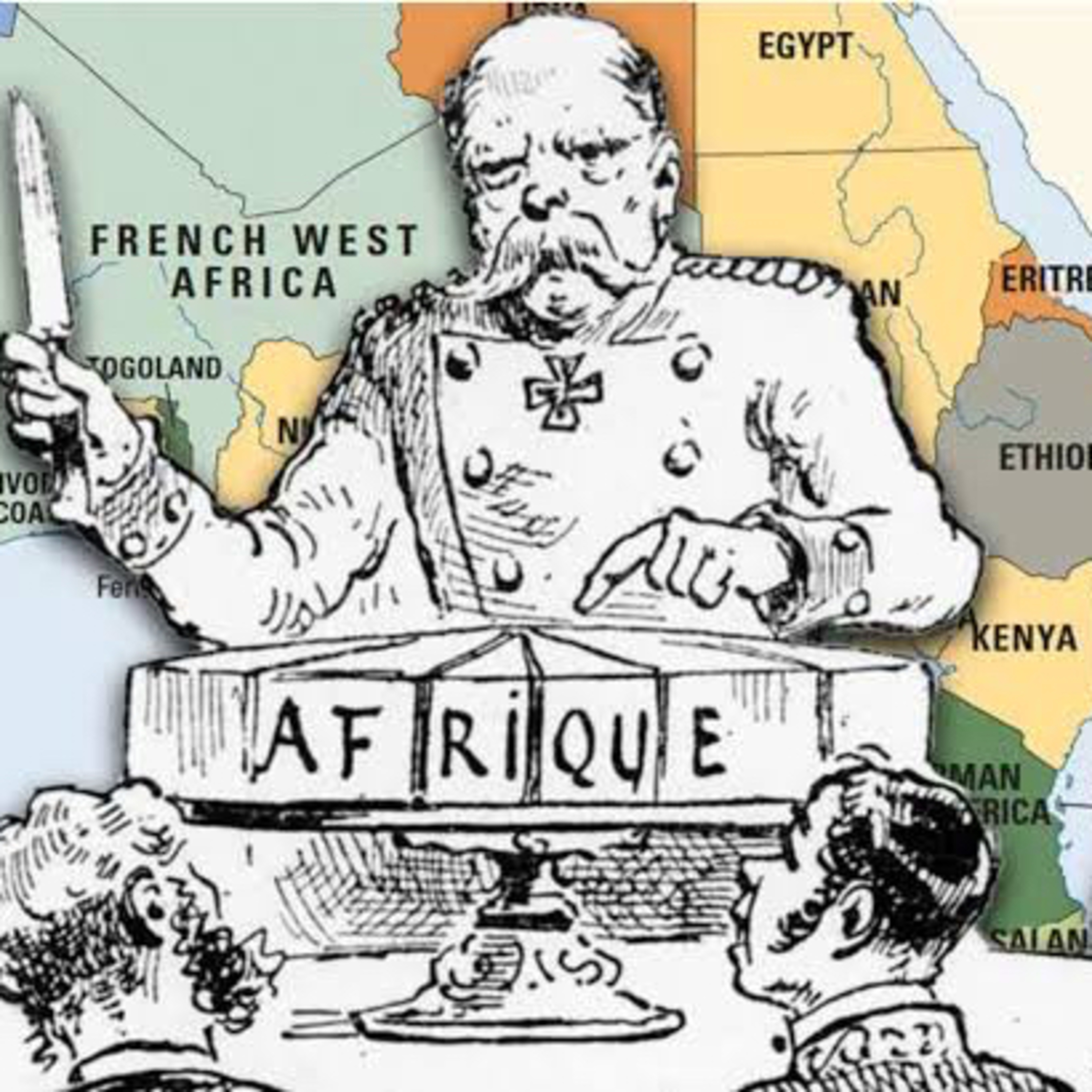 Chronicles and Power by IzuhManThe Berlin Conference (1884-1885). Part 2.The Berlin Conference, convened from 1884 to 1885, was a pivotal event in modern history that had far-reaching consequences for Africa. European powers, including Britain, France, Germany, Belgium, Italy, and Portugal, gathered to regulate the colonization of Africa. At the core of the conference was the "Scramble for Africa," a period of intense colonization and exploitation.During this time, European powers partitioned the continent among themselves, drawing arbitrary borders and claiming territories without regard for existing African kingdoms, cultures, and ways of life. This division led to the creation of artificial borders that often cut across...2025-02-1909 min
Chronicles and Power by IzuhManThe Berlin Conference (1884-1885). Part 2.The Berlin Conference, convened from 1884 to 1885, was a pivotal event in modern history that had far-reaching consequences for Africa. European powers, including Britain, France, Germany, Belgium, Italy, and Portugal, gathered to regulate the colonization of Africa. At the core of the conference was the "Scramble for Africa," a period of intense colonization and exploitation.During this time, European powers partitioned the continent among themselves, drawing arbitrary borders and claiming territories without regard for existing African kingdoms, cultures, and ways of life. This division led to the creation of artificial borders that often cut across...2025-02-1909 min Chronicles and Power by IzuhManThe Berlin Conference (1884-1885) Part 1.European powers, particularly Belgium, France, Britain, and Portugal, were racing to colonize Africa, sparking conflicts. German Chancellor Otto von Bismarck called the Berlin Conference (1884) to establish a unified policy for African expansion and avoid violence.2025-02-1604 min
Chronicles and Power by IzuhManThe Berlin Conference (1884-1885) Part 1.European powers, particularly Belgium, France, Britain, and Portugal, were racing to colonize Africa, sparking conflicts. German Chancellor Otto von Bismarck called the Berlin Conference (1884) to establish a unified policy for African expansion and avoid violence.2025-02-1604 min Chronicles and Power by IzuhManAncient Whispers (A Fictitious Ode to African Ancestors)Dike, a wise and fearless African leader, resisted European colonization in the 18th century. Despite being outnumbered and outgunned, Dike and his warriors fought valiantly to defend their land and way of life. Though defeated, Dike's legacy lived on, inspiring future generations to remember their heritage and defend their identity, urging them to always protect "Mama Africa."2025-02-1203 min
Chronicles and Power by IzuhManAncient Whispers (A Fictitious Ode to African Ancestors)Dike, a wise and fearless African leader, resisted European colonization in the 18th century. Despite being outnumbered and outgunned, Dike and his warriors fought valiantly to defend their land and way of life. Though defeated, Dike's legacy lived on, inspiring future generations to remember their heritage and defend their identity, urging them to always protect "Mama Africa."2025-02-1203 min Chronicles and Power by IzuhManCovert motives of colonial rule in Africa. Prt2Continuation of part 12025-02-0608 min
Chronicles and Power by IzuhManCovert motives of colonial rule in Africa. Prt2Continuation of part 12025-02-0608 min Chronicles and Power by IzuhManCovert motives of Colonial Rule in Africa. Pt 1.Learn about what is less or never talked about regarding the emergence of colonialism in Africa. How it has shaped and contributed to the continental unrest we witness today. 2025-02-0305 min
Chronicles and Power by IzuhManCovert motives of Colonial Rule in Africa. Pt 1.Learn about what is less or never talked about regarding the emergence of colonialism in Africa. How it has shaped and contributed to the continental unrest we witness today. 2025-02-0305 min